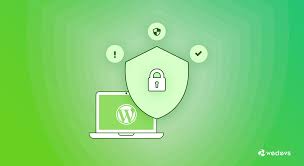In today’s continuously changing digital environment, having strong website security has become a must. With cyber threats constantly evolving and malicious actors becoming more sophisticated, protecting your website from possible assaults has never been more important. Firewall plugins have emerged as a very efficient and important solution for fortifying your website’s defenses among the myriad of security measures. By employing firewall plugins, you may proactively protect your website from several cyberattacks and enjoy more security and peace of mind.
In this step-by-step guide, we will dig into the relevance of website security, examine the dynamic nature of online dangers, and clarify how firewall plugins may strengthen the security posture of your website. It will arm you with the skills required to strengthen the security of your website and ensure a strong defense against prospective attacks.
Understanding the Basics of Firewall Plugins:
To start, let’s grasp the fundamentals of firewall plugins. A firewall acts as a barrier between your website and potential threats, monitoring incoming and outgoing traffic. Many managed hosting providers, such as easyhost pk often make a network-level firewall available to their customers. Firewall plugins, specifically designed for websites, add an additional layer of protection by filtering network traffic based on predetermined security rules. These plugins can detect and block suspicious activities, such as hacking attempts, DDoS attacks, and malicious code injections.
Selecting the Right Firewall Plugin for Your Website:
Choosing the right firewall plugin is essential to ensure optimal security. Begin by researching and comparing different firewall plugins available for your website platform, such as WordPress, Joomla, or Drupal. Look for plugins with robust features like IP blocking, intrusion detection, and malware scanning. Additionally, consider user reviews, ratings, and the plugin’s update frequency. Opting for a reputable and frequently updated firewall plugin will provide the latest security measures for your website.
Installing and Configuring the Firewall Plugin:
Once you’ve selected a suitable firewall plugin, the next step is installation and configuration. Begin by accessing your website’s administration panel and navigating to the plugin section. Search for the chosen firewall plugin, install it, and activate it. After activation, configure the plugin settings according to your specific requirements. This typically includes setting security rules, specifying IP ranges to block, enabling logging, and customizing notification preferences. Take your time to carefully configure the plugin to match your website’s security needs.
Regular Monitoring and Maintenance:
Enhancing website security is an ongoing process, and regular monitoring and maintenance of your firewall plugin are crucial. Keep the plugin updated to benefit from the latest security patches and bug fixes. Regularly review the firewall logs to identify any suspicious activities or blocked attempts. Adjust the security rules as necessary based on the information gathered from the logs. Additionally, stay informed about emerging security threats and vulnerabilities by subscribing to security newsletters or following trusted security sources.
Supplementing Firewall Protection with Best Practices:
Even if a firewall plugin offers adequate protection, it is still necessary to reinforce it with extra security. It is critical that you keep your website’s software, themes, and plugins up to date. Establish a routine of regularly backing up your website’s data. After that, make sure you securely store it in an offsite location. Utilize strong and unique passwords for all user accounts, including admin and FTP accounts. Implement SSL encryption to protect data transmission. Lastly, educate yourself and your team about common security risks and train them in best practices to avoid falling victim to social engineering attacks.
Securing your website should be a top priority, and using firewall plugins is an effective step toward fortifying your website’s defenses. By understanding the basics of firewall plugins, selecting the right one, installing and configuring it correctly, and regularly monitoring and maintaining it, you can significantly enhance your website security. Remember to complement the firewall plugin with additional security best practices for comprehensive protection. With a well-protected website, you can confidently focus on providing your users with an exceptional online experience.










